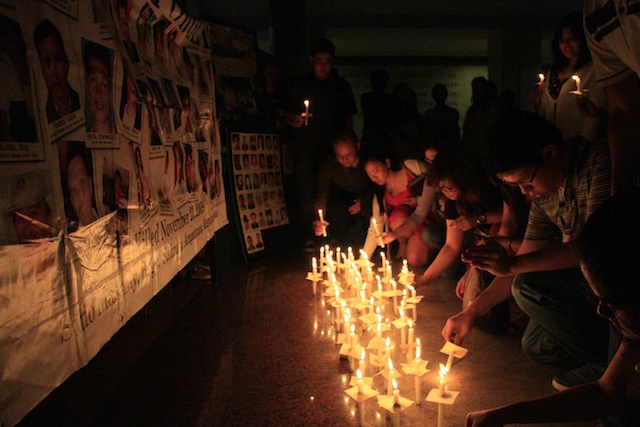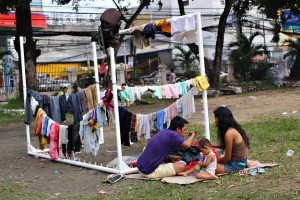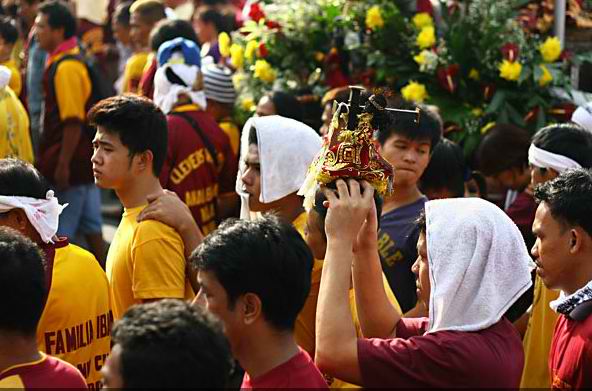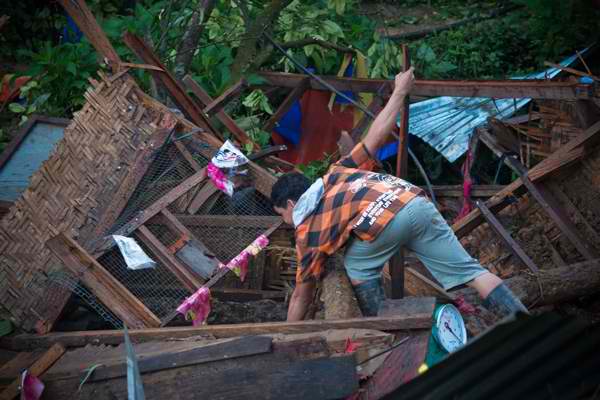By JONATHAN DE SANTOS
THE widows wore red, and not the black of mourning. “This doesn’t mean we are happy,” they said. “This shows we are still brave.”
The two were Cipriana Gatchalian and Ramonita Salaysay, both of whom lost their husbands in the infamous Maguindanao Massacre on November 23, 2009. Last Tuesday, they and other human rights activists gathered at the lobby of the University of the Philippines College of Law to mark the 44th month since the Massacre.
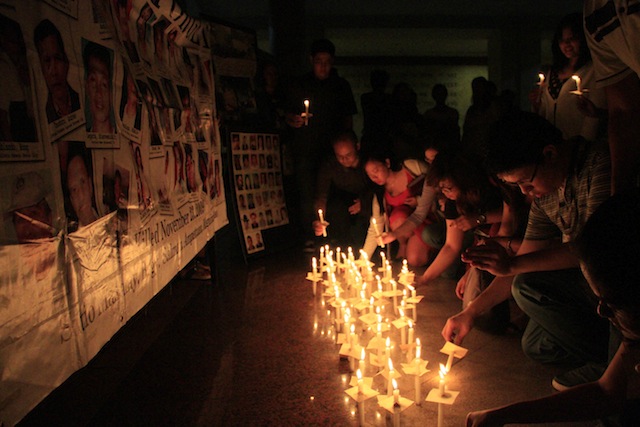
As they gathered, they talked about President Benigno Aquino III wrapping up his State of the Nation Address the day before, saying it felt good to be a Filipino, listing his administration’s accomplishments and laying down the legislative agenda for the 16th Congress.
They waited for Aquino to mention the Maguindanao Massacre and his promise that the families of the victims would get justice, but they waited in vain.
Editha Tiamzon, also widowed in the massacre, said her family had waited for the President to acknowledge their long wait, like the families of other victims of the massacre.
She said she expected Aquino to understand because his father also died of violence.
Salaysay said she had mixed emotions at the event. On the one hand, it has been that long and nobody has been convicted yet. On the other hand, she said, she was happy that people still remembered and gathered on the 23rd of each month.
“I hope the case won’t be forgotten,” she said.
Gatchalian admitted, though, that when her children are not home, she chooses to hide in the house. “For security reasons,” she explained, adding the people that killed her husband, a Davao-based journalist, are still around.
She said she believes the wheels of justice move slowly, but that there is progress in the case.
Last week, the Court of Appeals dismissed a plea by Andal Ampatuan Jr., one of close around 190 accused of participating in the massacre, to bar four witnesses from testifying in the trial. The witnesses include an Army officer and a forensics expert from the National Bureau of Investigation.
In June, the appeals court ruled that the testimony of Police Officer 1 Rainier Ebus, also accused of participating in the massacre, was admissible as evidence against Ampatuan.
Ebus testified that he helped hide guns that were allegedly used in the killings that left 58 dead.
Gatchalian said she hopes the case will be resolved soon, “so I can sleep soundly.”
Left Unsaid
Rowena Paraan, chairperson of the National Union of Journalists of the Philippines, who was also at the event, said Aquino’s State of the Nation Address not only skipped over the victims of the Maguindanao Massacre, but also victims of cases that were not as high profile.
In a statement issued on Monday, NUJP noted “no mention was made of human rights and the impunity with which these continue to be violated under his watch, as the bloody list of journalists, activists, environmentalists, religious, lawyers, indigenous people and many others whose lives have been snuffed out for simply deigning to exercise their constitutionally guaranteed freedoms continues to grow.”
She challenged the law students in the crowd to help change the culture of impunity where victims cannot easily file charges against politicians suspected of killings. She said that in many cases, victims couldn’t even get lawyers who are kept on retainer by politicians.
In some cases, she said, “no lawyer would dare (go against a local politician).”
“Commemorating (the Maguindanao Massacre) cannot be just be left to journalists,” she said.
Journalism professor Danilo Arao of the UP College of Mass Communications meanwhile said the Aquino administration’s talk of reform has meant little in terms of journalists dying in work-related killings.
He said 12 journalists have died in the first three years of President Aquino’s term versus 11 in the first three years of former President Gloria Macapagal-Arroyo’s term. “There is statistical evidence that things have not changed,” he said.
Meanwhile, Paraan said, of 155 media killings since 1986, there have been only 10 convictions. None of those convicted were the masterminds behind the deaths.
That, Arao said, poses a serious question for journalism students. “If you do your job well, you might end up killed. What will you do with honor an excellence (UP’s motto) if those could result in your being murdered?”
